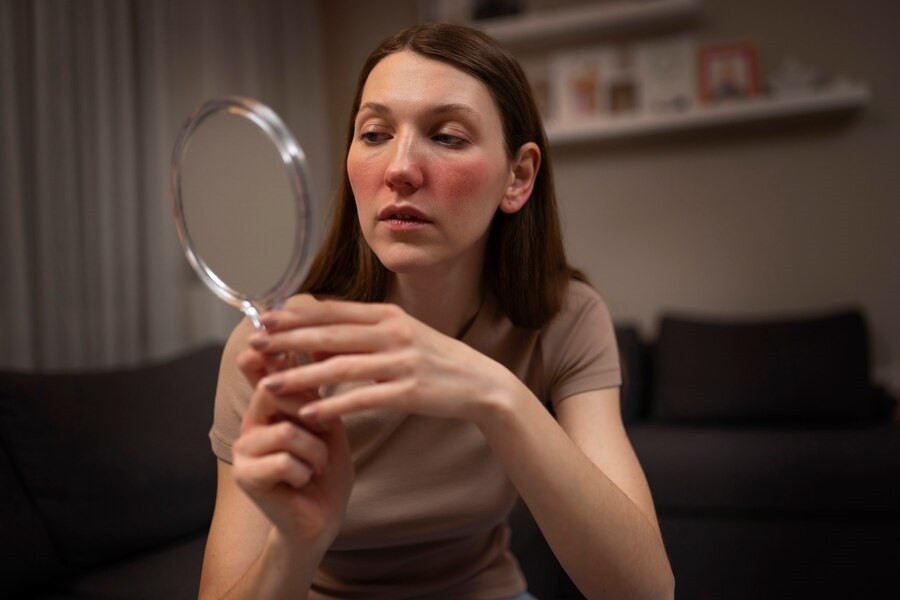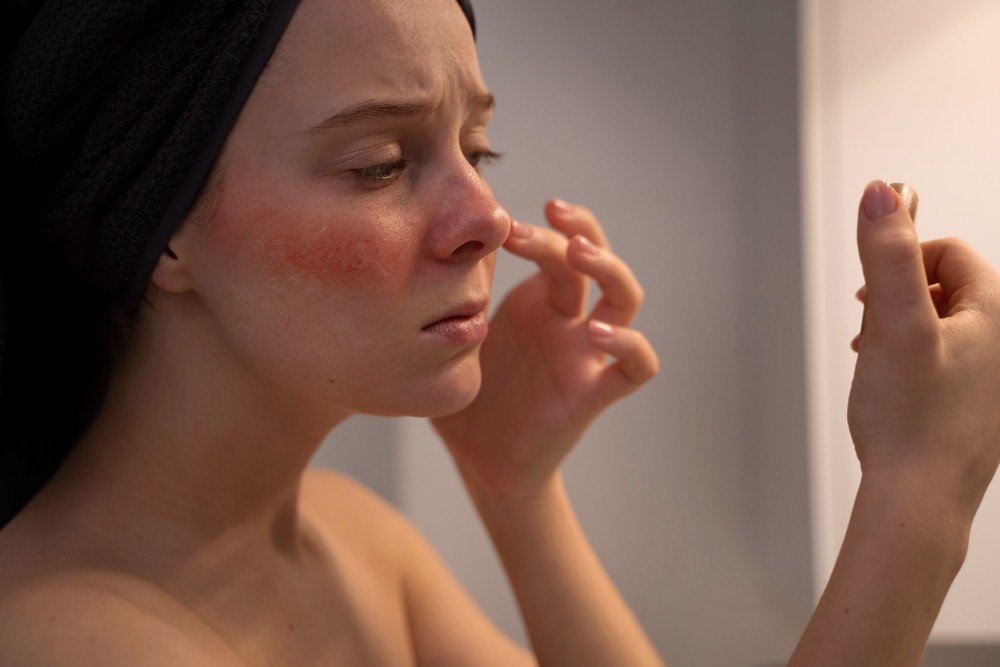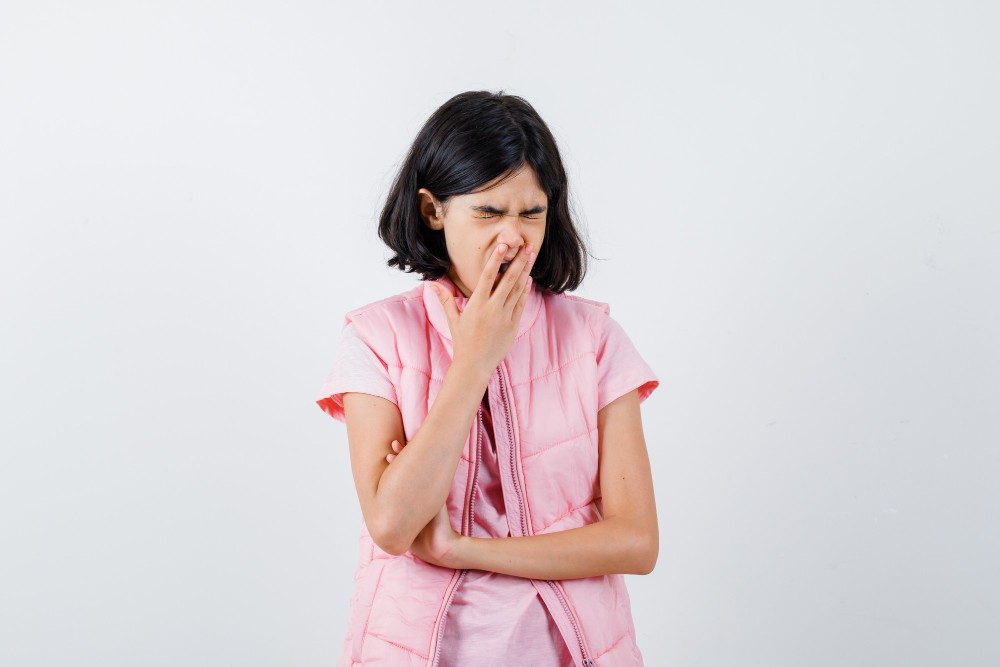Cosmetics are not something that should be considered uncommon because a lot of people, both men and women, use them on a daily basis. By applying cosmetics, you can improve your appearance, feel more confident, and express yourself more effectively.
Cosmetics also help improve appearance by hiding skin imperfections, highlighting desired facial features, and creating a fresher skin appearance.
A lot of people include cosmetics in their everyday beauty routine. It is important to keep in mind, however, that some people could react allergicly to the components of the applied cosmetics.
What are the most common cosmetic products that may cause allergic reactions?
According to experts, there are several beauty products that most commonly cause allergic reactions, including:
Body wash
Bath soaps contain ingredients that can cause irritation.
Detergent
Clothes washing detergents can irritate and leave residue on skin.
Antiperspirant
The chemicals in antiperspirants may cause skin reactions in some people, especially those with sensitive skin.
Eye makeup
Eye makeup products, such as eyeliner and eyeshadow, may contain certain ingredients that can cause irritation to the skin around the eyes
Moisturizers
Although the purpose of moisturizers is to nourish and hydrate the skin , certain ingredients may cause irritation, sweat retention, contact dermatitis, contact urticaria, and occlusive folliculitis.
Shampoo
Some chemicals in shampoo may also cause allergic reactions. Symptoms usually appear within 24-48 hours, such as skin redness on the neck, face, upper body, and hands. You may also experience scaly patches on the scalp, face, ears, and back of hands.
Lip products
Contact allergies, especially on the lips, may occur when the lips come into contact with substances that cause allergic reactions, such as lip products. Lips that experience an allergic reaction may experience symptoms such as redness, swelling, itching, burning and blistering.
Hair dyes
Hair dyes often contain ingredients such as p-phenylenediamine and ammonium persulfate, which can cause skin reactions in some people.
Symptoms of cosmetic allergic reaction
Symptoms of allergic reactions to ingredients in cosmetic products typically include:
- Rash or itching
- Swelling
- Redness
- Irritation
- Skin peeling and scaling
- Formation of blisters
- Shortness of breath or difficulty breathing
It is important to stop using certain cosmetics if you experience any of the allergic reactions mentioned above.
How to avoid cosmetic allergic reactions
Although allergic reactions can be treated, it is good to take precautions and avoid allergic reactions. Here are some tips to avoid skin reactions caused by cosmetic products:
- Choose cosmetic products with the fewest ingredients to minimize allergic reactions.
- Perform a patch test and wait 48–72 hours for a skin reaction to occur.
- Avoid applying fragrance directly on the skin
- Beware of labels that claim to be hypoallergenic by testing anyway
While the use of cosmetics can provide benefits, it is important to choose and use cosmetic products wisely and follow healthy skincare steps. This includes cleansing regularly, using products that are appropriate for your skin type, and avoiding using products that contain harmful or potentially allergenic ingredients.
If you have any questions about choosing cosmetic products, you can either visit a doctor or make use of the consultation features that are available in the Ai Care application by downloading the Ai Care application from the App Store or Play Store.
- dr. Alvidiani Agustina Damanik
WebMD (2023). Skin Reactions to Beauty Products. Available from: https://www.webmd.com/allergies/cosmetics
Healthline (2018). Healthy Cosmetics. Available from: https://www.healthline.com/health/beauty-skin-care-cosmetics
US FDA (2022). Allergens in Cosmetics. Available from: https://www.fda.gov/cosmetics/cosmetic-ingredients/allergens-cosmetics
Britannica (2024). Cosmetic. Available from: https://www.britannica.com/art/cosmetic
Daniel More, MD (2023). Armpit Rash from Deodorant. Available from: https://www.verywellhealth.com/deodorant-and-antiperspirant-allergy-82753
Klaudia Ryczaj, MD, et all (2021). Potentially harmful substances in moisturizers. Available from: https://www.jacionline.org/article/S0091-6749(21)00815-0/fulltext
Rebeca Schiller (2022). Is Your Shampoo Causing an Allergic Reaction?. Available from: https://www.verywellhealth.com/allergic-reaction-shampoo-5216076
Tabitha Britt (2021). What to know about an allergic reaction on the lips. Available from: https://www.medicalnewstoday.com/articles/allergic-reaction-on-lips
Corey Whelan (2023). Hair Dye Allergy. Available from: https://www.healthline.com/health/hair-dye-allergy
Mayo Clinic (2022). Allergy skin tests. Available from: https://www.mayoclinic.org/tests-procedures/allergy-tests/about/pac-20392895











